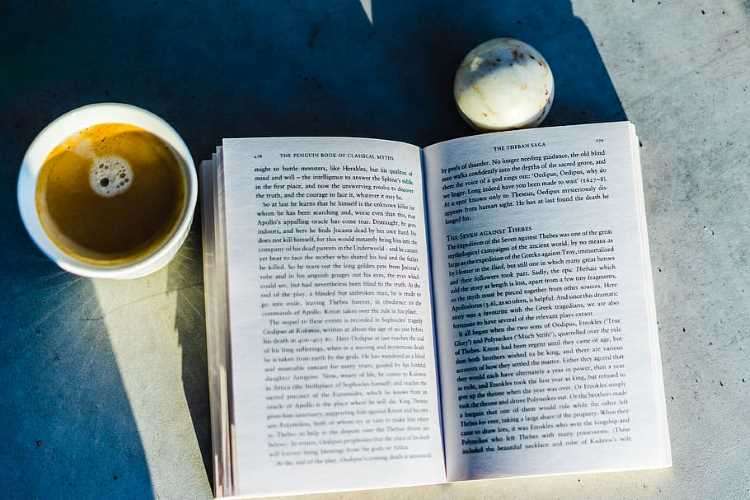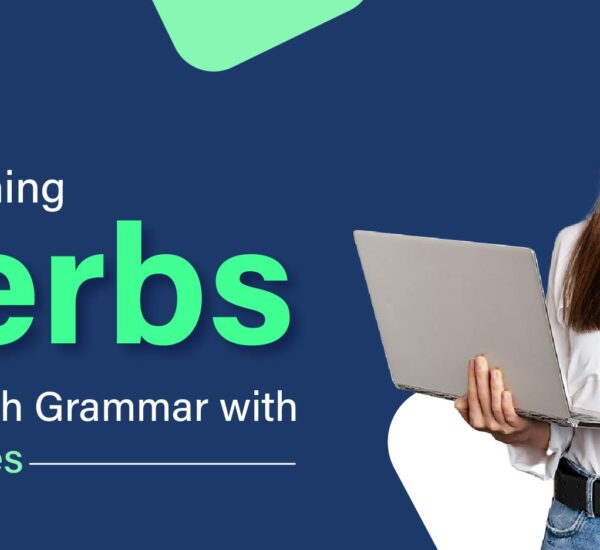One part of speech stands out from the rest: the pronoun, verb, adjective, noun, and so on. They don’t help you understand word relationships, and they don’t serve a grammatical purpose.
Interested in learning English more about this fascinating group of words? This article answers the questions, the definition of interjection in English grammar, “Why are interjections so special?”and the rules with usage. So why are we waiting, skim through.
Interjection in English Grammar
A sentence, word or phrase, that expresses meaning, emotion, or feeling is called an interjection. These emotional words are followed by exclamation points, which are most often but not always used as punctuation marks. Consider the following scenario:
Shit! My essay and project are due tomorrow!
This word does not imply that there is something bad in the area. Instead, it expresses disappointment and dissatisfaction at not being able to meet a deadline.
Wow, what a view of the castle!
You aren’t saying “whoa” to calm down your horse in this case. Rather, it expresses surprise at the beauty of the view.
Interjection Definition and Meaning
Wow! Ouch! Oh, my goodness! Yikes!
You’ve used an interjection if you’ve ever said any of the words above, whether you realised it or not. Interjection is derived from the Latin words inter (between) and jacare (to be) (to throw). So, an interjection is a word that you use to express a sudden feeling in between sentences or thoughts.
Also Read: Grammar Errors to Avoid: How to Improve Your English Grammar?
Interjections and Their Types
Primary Interjections with Examples
Primary Interjections are words that are solely interjections and cannot be classified as any other part of speech.
Examples:
| Yuck | Brr | Aha | Gah |
| Ew | Eek | Gadzooks | Ha |
| Aw | Uh-huh | Pish | Ick |
| ouch | Boo | Huzzah | Geez |
| Oh | Hm | Woot | Meh |
| Ah | Gee | Gada bing | Mmm |
| Ugh | Gosh | Zowie | Oof |
| Phew | Whoa | Boo hoo | Pfft |
| Phooey | Yahoo | Drat | Psst |
| Yum | Bah | Duh | Tsk tsk |
| Yippee Ack | Hmph | Er | Um |
| Blah | Yowza | Fooey |
Secondary Interjections
They are adjectives, nouns, and other parts of speech that act as interjections on occasion.
Examples:
Indeed. I had been anticipating your forewarnings.
Goodness! How did you manage to read all of these books in a single day?
Oh, my goodness! This is the last vegetable I expected to eat.
Some More Examples
| Nice | Man | Cheers | Easy |
| Sweet | No way | Bull | Exactly |
| Cool | My | Oh boy | Here |
| Super | Well | Oh brother | No |
| Indeed | Rats | Awesome | There |
| Swell | Good | Now | My word |
| Welcome | Great | Hey | Roger |
| Please | My goodness | I say | Whatever |
| Nuts | Finally | Agreed | What |
| Holy cow | Excellent | All right | Word |
| Wicked | Radical | Yes | You don’t say |
| Nope | Dear me | Brother |
Mild Interjections with Examples
They are the relatively mild expressions of feelings and emotions. Commas are used to separate these types from the rest of the sentence.
Examples:
Oh, I was on the lookout for you.
It wasn’t easy, to be sure.
I’m doing fine, actually.
Strong Interjections with Examples
They are defined as strong outbursts of emotion. Exclamation marks usually separate these types from the rest of the sentence.
Examples:
Yay! Finally, I was successful.
Bingo! It was discovered.
Ouch! That was a painful experience.
Volitive Interjections with Examples
They are commonly used to express requests, commands, and wishes. “I want” expressions are replaced with Volitive Interjections in the speech.
“Enough” expresses a desire to stop listening to someone and possibly make a counter-argument. “Shoo” usually expresses the speaker’s desire to evict someone.
Examples:
(I’d like you to keep quiet) – Shh! We have to keep it under wraps.
Ahem (I’d like to draw your attention to something) – Ahem! I was thinking about another issue.
Emotive Interjections with Examples
They are words used to express sudden bursts of emotion such as disgust, surprise, sorrow, delight, and fear. In speech, these types usually take the place of “I feel” expressions.
“Eww” means “I am disgusted,” while “Phew” means “I am relieved.”
Examples:
‘Ugh!’ (I’m disgusted) – ‘Ugh!’ What is that foul odour?
Ouch (I’m in pain) – Ouch! These ants are venomous.
Yippee (I’m overjoyed) – Yippee! We were victorious at the end of the year.
Cognitive Interjections with Examples
They are words that are derived from cognition and used as exclamations. These types are used to express the feelings and emotions that people encounter and comprehend through their lives.
Examples:
So, I’ll give it my all.
Bravo! What an amazing performance!
Gosh! You’re incredibly quick.
Interjections and Their Rules
Also Read: Online Grammar Tools To Use: Let’s Get Perfect at English Grammar Proficiency!
Rule 1
Interjections are used to emphasise a sudden emotion, mood, or feeling. There are also a number of taboo words that are commonly used in everyday conversation but are not appropriate for formal situations. Interjections are the words that fall into this category.
Examples:
Wow! That is an incredible scene.
I really didn’t want him to come.
What? That’s something you never told me!
Rule 2
Interjections are used to break up a conversation or a thought, or to hold someone’s attention for a brief period of time. These are only sounds, not words, because the sounds are meaningless.
Examples:
On the back of your shirt, there’s a stain.
I’d like to invite you out on a date.
Rule 3
Some interjections are limited to expressing yes or no.
Example:
Yes! I’m sure I’ll be able to pull it off.
No way are we going.
Rule 4
Some are employed in order to attract someone’s attention.
Example:
Hello, Alex! Get in your vehicle!
Hey! Will you hand over the ball to me?
Yoo-hoo! Is there anyone else here?
Interjection Usage
As you can see from the examples above, an interjection can be used at the beginning of a sentence. It isn’t, however, a strict rule. In fact, you can use emotional words at the beginning, middle, or end of a sentence. Interjections can follow any part of speech, including verbs, adjectives, and nouns. Here’s an example of a sentence with emotion words in the middle:
My first dish was yucky, and I didn’t like it.
That example explains why the dish tastes so bad. Here’s another example, this time with an emotion word at the end of the sentence:
Ugh, I dropped my wallet yet again.
The speaker in this example is irritated because their wallet has fallen.
Usage in Sentences
Within a sentence, an interjection can be used. When you do this, think of the interjection as a separate element from the rest of the sentence. You can use parentheses or commas to separate the interjections.
Maybe I won’t succeed, but at least I tried. The logistics team made a few (ahem) mistakes, which caused the project to be delayed. The new metro will take only thirty minutes to reach the city (Wow!).
Also Read: Proper Uses of Simple Present Tense in English: A Guide to Better Grammar
Some Correct and Incorrect Sentences
The most important thing to keep in mind is that the interjection must be set off in some way. To make it stand out from the rest of the sentence, don’t just drop it in with nothing.
Incorrect: My boss gave me an extra day to finish the work assignment because I forgot to do it.
Correct: I forgot to do my work assignment (oops), but my boss granted me an extension to complete it.
Incorrect: Gee That had not occurred to me.
Correct: That’s something I hadn’t considered.
List One
#absolutely- a word that means “without a doubt.”
#aha – greeting someone, especially in a nautical context
#ahoy – exclaiming a great revelation or discovery
#awe-inspiring – demonstrating that something is exceptional
#argh – a disapproving groan
#bam – a startling, loud sound
#behold – bringing something to the foreground
#bingo – a loud sound or bang that indicates that something is correct
#kudos- for a job well-done
#cheers – wishing happiness booyah – expressing excitement
#dang – to express dissatisfaction
#Doh- Something has gone wrong, as indicated by the word “doh”
#eek – a terrifying sound
List Two
#fiddlesticks- expressing dissatisfaction with fiddlesticks
#geez – a frustrated or surprised expression
#golly – a word that expresses surprise or concern.
#hallelujah – a joyful greeting that literally means “God be praised.”
#hmm – wondering or thinking about something
#huh – expressing astonishment or surprise
#nah – a colloquial form of “no”
#oops – a phrase that denotes a mishap.
#tut – to express annoyance
#splat – the sound of something squishing or falling
#whoa – to express astonishment or surprise
#Wow – expressing admiration or surprise
#Yahoo- denotes excitement, while yikes denotes fear, surprise, or awkwardness.
Examples in Sentences 1
#Wow! Sheela is looking gorgeous.
#Hurray! Our squad has won the match.
#Hey! Are you serious?
#Alas! Sam’s father died yesterday.
#Yippee! We are going on holiday.
#Hi! Where have you been?
#Oh! The place is so crowded.
#What! You have broken the frame of the specs.
#Ah! What a relief!
#Wow! The photograph is awesome.
#Listen! You will stay right here.
#Look! Who has come?
#Splendid! I really like it.
#Well done! Keep it up.
#Hey! Don’t talk like that.
#Hi! Here I am.
#Hello! I am Sheela.
#Oh! The schedule is very hectic.
#What a pity! You have lost it.
#Hey! Listen to me.
Also Read: Contractions in English Grammar: What is The Importance of Contractions in Grammar?
Examples in Sentences 2
#Ahh, that feels wonderful.
#Alas! I’m lost in the forest.
#Bless you! I couldn’t have earned it without you and my mom.
#It’s time for me to go. Cheerio!
#Congrats! You finally got your post graduation degree.
#Crikey! Do you ever think before you act?
#Gesundheit! Are you starting to get a fever?
#Good grief! Why are you wearing so little in the winter?
#Grrr. I’m going to get back at her for that.
#Humph. She probably cheated to get such nice grades.
#Oh dear! I have no idea what to do about this lot.
#Shoot! I forgot my aunt’s birthday.
#Well, duh! That was a stupid stuff to do!
#Yowza! That is a gorgeous blazer.
Examples in Sentences 3
#Ugh! Today they’re serving vegan burritos that have been reheated.”
#“Yes! Today’s lunch will be vegan burritos.”
#“Huh? “Would you like to go out with me to Paris?”
#“Really? “Would you like to eat potatoes with pepper once more?”
#“Hey, what’s the answer to the third question in set B?”
#“I don’t give a damn about vegan burritos.”
Examples Used in Popular Movies
“Cowabunga, dude!” — Michelangelo, Teenage Mutant Ninja Turtles
“Zoinks!” — Shaggy, Scooby-Doo
“Cowabunga!” — Bart Simpson, The Simpsons
“Holy Smokes, Batman!” — Robin, Batman and Robin
“Aaay!” — Fonzie, Happy Days
“Alas, poor Yorick! I knew him, Horatio.” — Hamlet, Hamlet
“Bazinga!” — Sheldon Cooper, The Big Bang Theory
“D’oh!” — Homer Simpson, The Simpsons
“Dude.” — Hurley, Lost
“Nanu, nanu!” — Mork, Mork and Mindy
“Yabba dabba doo!” — Fred Flintstone, The Flintstones
Conclusion
It’s difficult to use interjections incorrectly because they’re usually separated from other sentences. The bigger question is whether or not using an interjection in your writing is appropriate. In informal and casual writing, interjections are acceptable. It’s also acceptable to use them in speech. In formal writing, however, interjections should be avoided because they may appear as if you aren’t taking the topic seriously.
You also have the choice to download the Fluent Life application on your mobile phone for customized personal lectures where you get instant feedback on your performance and can resolve all your queries.
You’re now ready to use interjections in everyday situations. Hooray!
Also Read: Genders in English Grammar: Learn the Correct Genders with Relevant Examples






